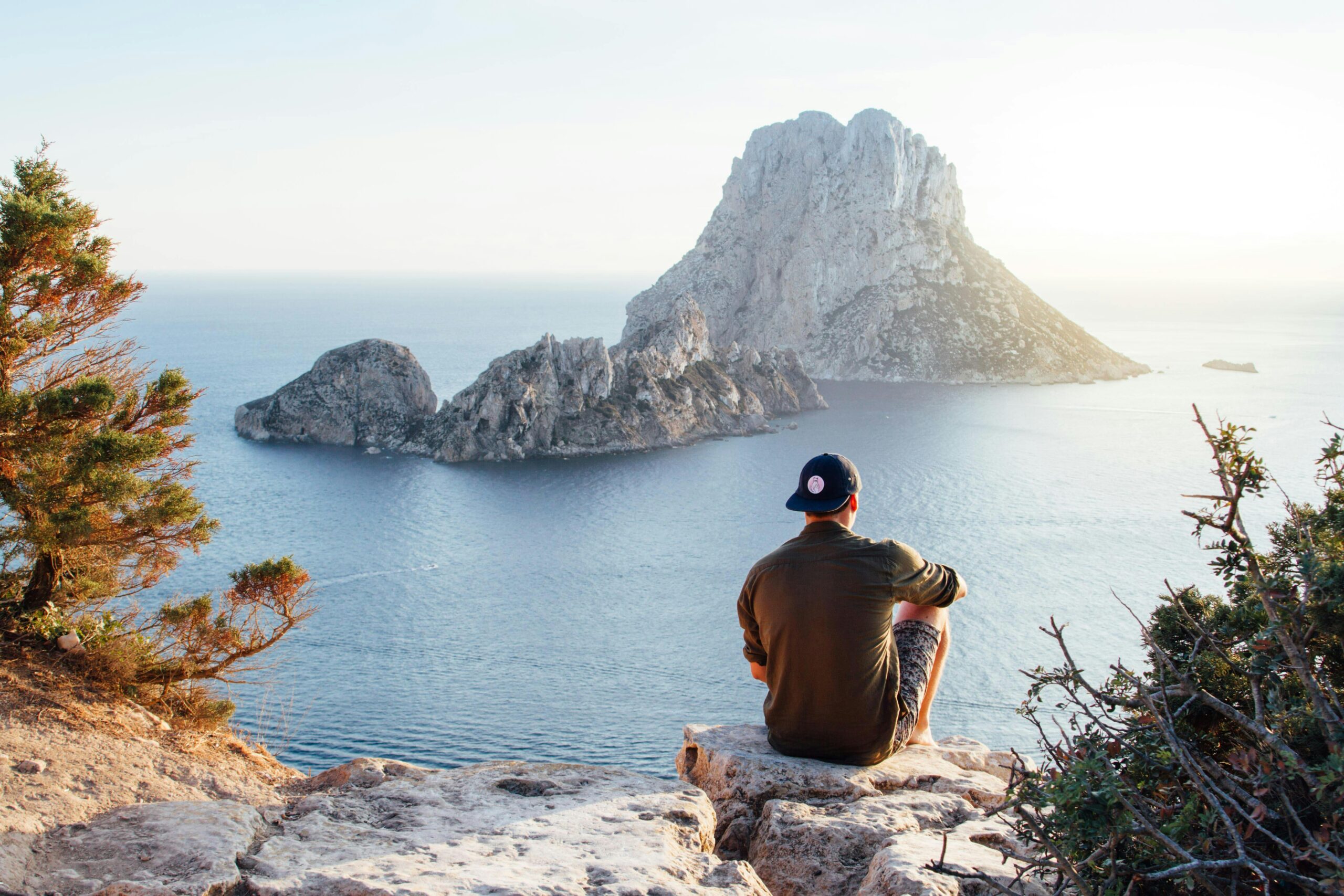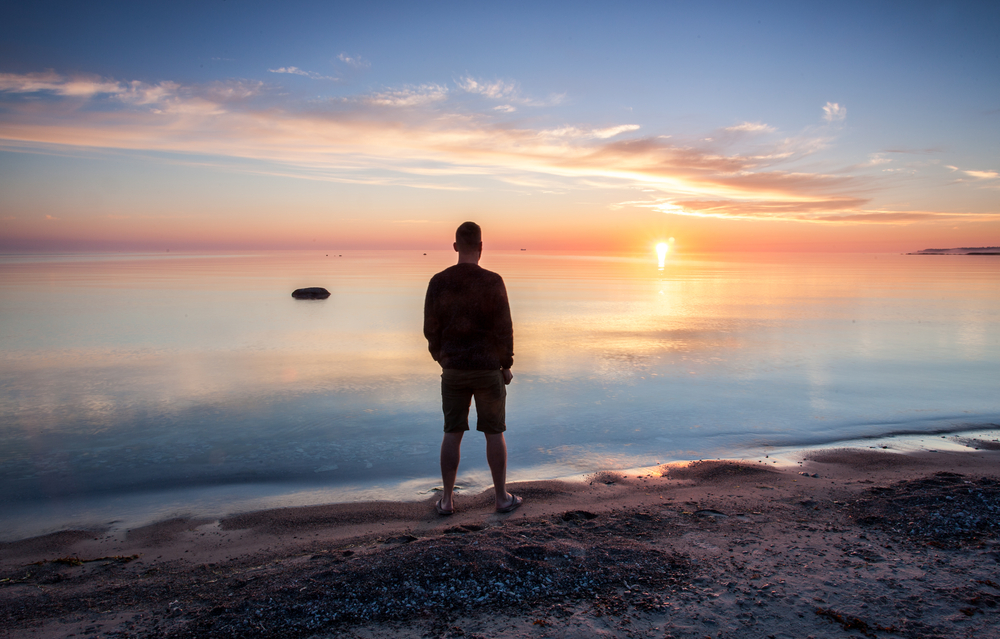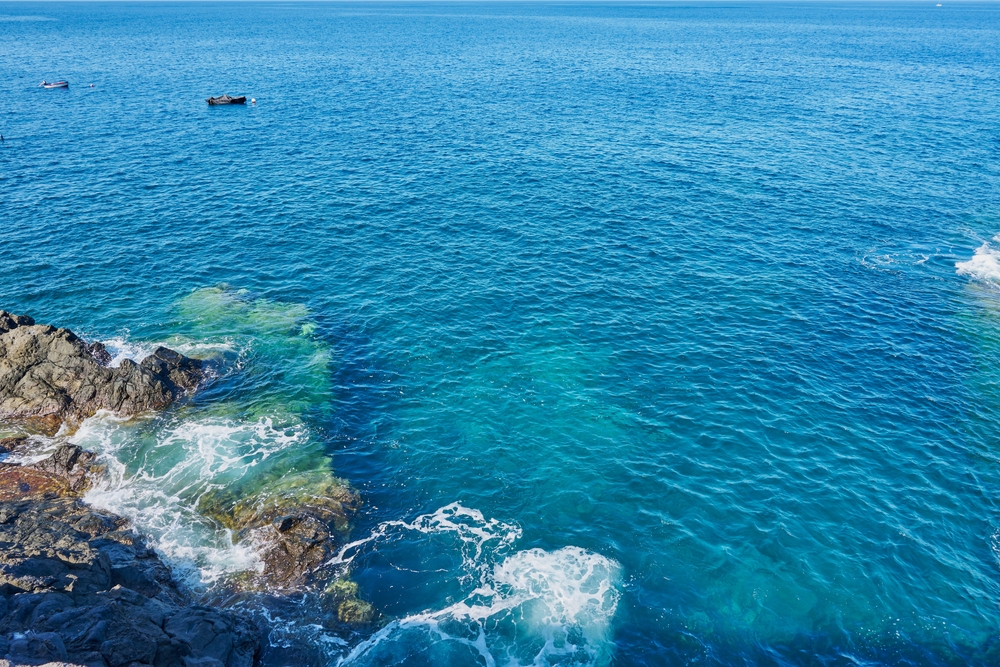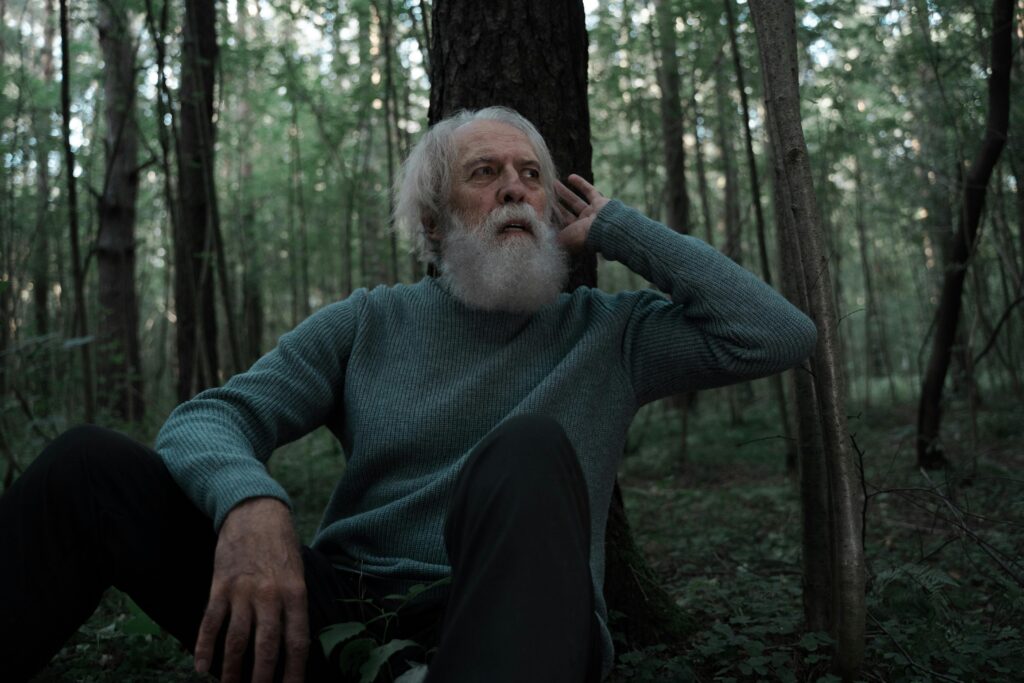The Hermit Who Returned to Society After Thirty Three Years on Budelli

In an age of endless pings, buzzing phones, and curated lives broadcast across social media, one man walked away from it all and stayed away for more than three decades. Mauro Morandi’s story reads like a fable from an earlier time: a sailor whose boat broke down in 1989, who found refuge on Budelli an impossibly beautiful island in Italy’s Maddalena archipelago and chose to remain there as its lone guardian. He lived simply, fiercely, and quietly. Then, in his eighties, the world pulled him back. He left Budelli and, three years later, died at 85, closing a life that forced people everywhere to ask: what does it mean to escape, and what does it mean to come home?
This piece stitches together the myths, the facts, and the human texture of a life lived intentionally at the margins. Drawing on decades of interviews and profiles from outlets including The Guardian, CNN, the BBC and others, we’ll explore how Morandi became both a shield for a fragile shore and an unlikely mirror for our noisy era. His story is not only about solitude but about resilience, reinvention, mortality, and the tension between silence and connection.
How a Breakdown Became a Beginning
In 1989, Morandi’s plan wasn’t to vanish. He was bound for Polynesia, dreaming of a life free from consumerism and political noise. A mechanical failure diverted him to Budelli, a tiny island famed for its pink sand made of crushed coral and shells. What might have been a mere pit stop instead became a permanent home. He stayed.
Unlike cinematic shipwreck tales, Morandi’s early days weren’t about dramatic battles with storms or wild animals. They were about building a life from daily small necessities: repairing an old World War II radio hut to make a shelter, rigging a solar system for electricity, collecting rainwater to drink, and learning to live with fewer goods and more attention. The island’s rhythms tides, seasons, the migration of birds, and the silence of starry nights set the tempo for his existence.
For Morandi, what began as accident became intention. He found in Budelli what he had been searching for all along: the possibility of peace, the stripping away of unnecessary clutter, and the chance to experience nature unmediated. “I didn’t feel like talking to anyone,” he once explained. And so, for decades, he largely didn’t.
A Quiet Steward: Caretaker, Educator, and Protector

Morandi’s life was not idle retreat. He became Budelli’s de facto guardian. Visitors often arrived unaware of the island’s fragility. Morandi cleaned trash from beaches, chased away trespassers who threatened the pink beach’s delicate sands, and spoke to curious tourists about environmental responsibility.
Why people noticed:
- Symbolic stewardship: In the public imagination he became a romantically cast guardian a man protecting paradise. Media outlets labeled him “Italy’s Robinson Crusoe,” and petitions once gathered tens of thousands of signatures when eviction threats surfaced. (BBC, The Guardian).
- Practical work: He maintained paths, repaired structures, deterred careless intruders, and documented changes in the island’s ecosystem. Small acts of care, performed daily, became meaningful conservation work.
His hermitage was paradoxical. He lived apart, but he was also connected: admired by environmentalists, visited by journalists, mythologized as an emblem of what society had lost. Yet his stewardship unfolded on shaky legal ground: Budelli’s ownership shifted across private hands and eventually into the Italian national park system. That transition set the stage for decades of conflict.
The Long Fight: Law, Love, and Leaving

For years, Morandi resisted efforts to remove him. Authorities argued that the island’s management required official oversight and that an informal caretaker, however well-meaning, could not hold legal title. Supporters argued that he was protecting Budelli better than absentee owners ever had. His presence symbolized a kind of grassroots guardianship, the devotion of one man preserving what bureaucracy struggled to defend.
At times, he became a cause célèbre. In 2020, more than 70,000 people signed a petition urging the Italian government to allow him to stay. International media amplified his plight, and his rugged image long beard, simple clothes, weathered face became iconic.
By 2021, bureaucracy and reality converged. Morandi accepted eviction after decades of resistance and reluctantly moved to La Maddalena. He posted on social media a blunt note of surrender slang that translated to “My balls are broken,” meaning he was simply fed up and left the island he loved.
That departure wasn’t merely physical; it was existential. Budelli had been the container of his life for 32–33 years. To leave it was to close a chapter whose margins had been carefully inked by daily routine. It was not just moving house; it was dismantling a world.
Re-entering the World: Rediscovery and Strange Comforts

Most imagined that the man who thrived in silence would be crushed by life back among people. The reality was more complicated.
Settling into a modest apartment in La Maddalena, Morandi discovered modern comforts with a childlike appreciation: a fitted kitchen, a kingsize bed, hot showers, and perhaps most movingly fresh fried fish. On Budelli, he had subsisted largely on canned goods and occasional deliveries. Now he relished tastes and textures previously distant from his life. Linguine with seafood, fresh fried soles, and even a morning coffee on a terrace overlooking the port were rediscovered joys.
He also reconnected socially. He sharpened his online presence, posting memories of Budelli and snapshots of his new routines. He began writing memoirs, capturing decades of solitude. He even rekindled an old romance, inviting a former sweetheart into his life. His words to CNN capture the paradox: “I’m the living proof that a second, new life is possible. You can always start all over again, even if you’re over 80.”
He admitted to being unsettled by noise motorbikes, cars, chatter. “I became so used to the silence. Now it’s continuous noise,” he told The Guardian. Even so, he surprised many by not withering in his new surroundings but flourishing.
The Costs of Silence and Why It Matters

Solitude offers serenity, but it also extracts a price. Morandi’s decades on Budelli came with physical tolls: limited diet, exposure to harsh weather, and the strain of self-sufficiency. In 2023, he suffered a serious fall that left him with vertebral injuries, forcing hospitalization and time in care homes.
His final years were marked by fragility and movement between institutions, eventually leading back to his birthplace of Modena. There, on January 3, 2025, he died at the age of 85. The hermit who once seemed indestructible succumbed, like everyone, to the body’s limits.
His passing underscored the inescapable truth: escapes are meaningful, but they are not permanent. Even the strongest resolve bends to time.
What the World Saw: Mythmaking, Media, and the Paradox of Fame
There’s delicious irony in Morandi’s tale. The man who left society for peace became a global curiosity, photographed, interviewed, and admired. His solitude was amplified, his silence narrated for millions. His story fit into a familiar narrative: the modern hermit rejecting materialism. He became Italy’s Robinson Crusoe, a cultural shorthand for longing and rebellion.
At the same time, critics pointed out the contradictions. His stay was technically unauthorized. His myth resembled the “noble savage” archetype a romanticized outsider who, in practice, was entangled in messy realities of law, ownership, and conservation policy. Even his admirers sometimes overlooked the ecological complexities of Budelli, a place requiring more than symbolism to preserve.
Yet the rush to mythologize him reveals something about collective desires: we hunger for authenticity in an age of artifice. Morandi’s weathered solitude offered that, even if imperfectly.
Beyond the Headlines: A Life in Broader Context
The romantic story of #Italy's Robinson Crusoe finally comes to an end. After 32 years of being the sole inhabitant of a tiny #island famous for its pink sands, 82-year-old Mauro Morandi bids a reluctant farewell to his "little paradise on earth." https://t.co/XbMvxUp6Fv pic.twitter.com/gxJx0eLQL3
— Wanted in Rome (@wantedinrome) April 29, 2021
Morandi’s retreat also reflects broader cultural questions. Why are modern audiences so enthralled by the idea of a hermit? His life resonated because it inverted the values of constant productivity, online presence, and consumption. In a sense, Morandi acted out an experiment many fantasize about but few ever dare to attempt.
The pandemic years, especially, brought renewed attention to his life. When much of the world experienced enforced solitude, his chosen solitude seemed less eccentric and more aspirational. His ability to transform isolation into meaning provided an odd comfort for people trapped in apartments, yearning for silence.
His environmental stewardship also carried lessons about individual responsibility. He proved that one person’s persistence could hold back the tide of carelessness, at least for a while. In an era of ecological crisis, his daily acts stood as quiet protest.
Lessons from Budelli: Solitude, Stewardship, and Second Acts

Morandi’s life is many things at once: environmentalism in practice, an experiment in radical simplicity, a meditation on aging, and a study in reintegration. His life, in its complexity, offers lessons that extend beyond his tiny island.
- Simplicity is a skill, not a destination. Living with less requires learning, adaptation, and daily discipline. Morandi taught himself to build and maintain what he needed.
- Stewardship can be unspectacular but powerful. Small daily acts clearing paths, educating a visitor, removing litter can preserve fragile places in ways laws and budgets sometimes can’t.
- People can reinvent late in life. Morandi’s embrace of social media, memoir-writing, and companionship in his eighties shows that reinvention doesn’t expire with age.
- Legal and ecological systems matter. Romanticizing escape elides necessary questions about land management, communal rights, and conservation.
- Silence is precious, but not infinite. Solitude can heal, but even Morandi eventually found meaning again in conversation and company.
- Mortality comes for every myth. Even hermits who live apart from the rush of time are still bound by it.
The Island as Mirror
Mauro Morandi’s story resists tidy moralizing. It is about the ache for silence, the ethics of guardianship, the comedic rebirth of an octogenarian astonished by hot water, and the inevitable decline we all face. He chose solitude and, for decades, lived it with dignity; he returned and found the world both kinder and crueler than he imagined. His death, away from Budelli, was both ordinary and extraordinary: the closing of a story that had enchanted millions.
If there’s a single quiet lesson here, it may be this: solitude can reveal what matters, but it rarely delivers the final answer. Community, law, and the unpredictable logistics of life will always be part of the story. Morandi’s life invites us to ponder balance how to protect what’s fragile while not becoming a fossilized monument to our own ideals.
Something to Carry Home
Mauro Morandi left a world of pink sand and turquoise hush, and he left a human story that refuses to be flattened into legend. He teaches that purposeful withdrawal can illuminate our values, that stewardship matters even when unrecognized, and that even the most intentional journeys circle back to shared human realities.
When we scroll past the photograph of the bearded man on a quiet shore, we might ask: what silence do we seek, and what responsibilities follow when we find it? Morandi chose solitude and, in doing so, offered a warning and an invitation to cherish the quiet, yes, but not to forget the ties that bind us to others and to the laws that protect the places we love.
Loading...

